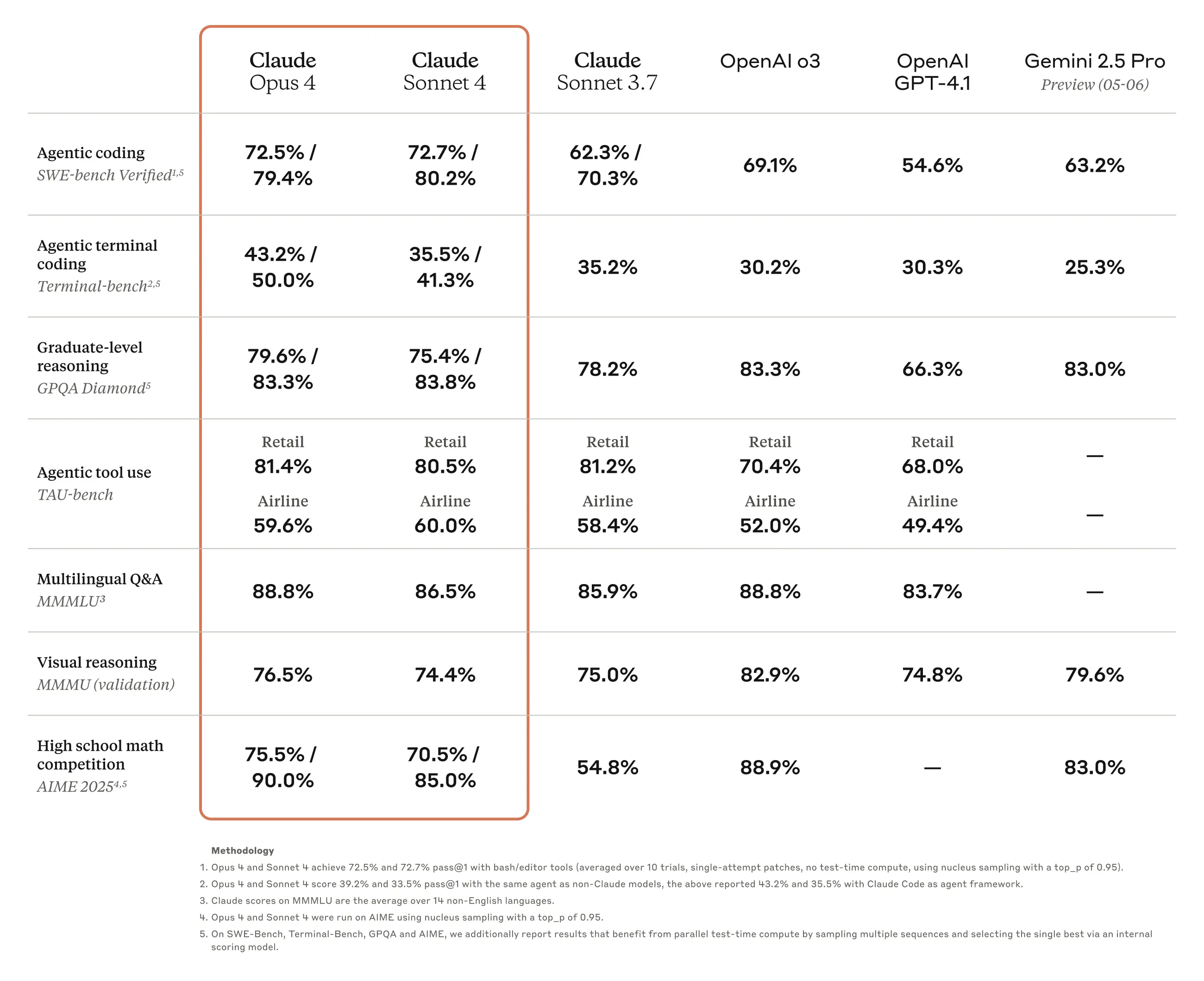Claude 4 Sonnet & Opus
With the launch of Claude 4 Sonnet and Opus, Anthropic has introduced its most advanced AI models yet.
Both models share the same large 200k token context window and up-to-date training data (March 2025), but they are designed for slightly different needs.
| Feature | Claude 4 Sonnet | Claude 4 Opus |
|---|---|---|
| Context Window | 200k tokens | 200k tokens |
| Training Cutoff | March 2025 | March 2025 |
| Max Output Tokens | 64k | 32k |
| Input Price | $3 / million tokens | $15 / million tokens |
| Output Price | $15 / million tokens | $75 / million tokens |
| Performance Summary | Improved reasoning and intelligence vs Sonnet 3.7 | Most capable model with superior reasoning |
| Latency | Moderate | Slow |
| When to use? | Best price/ value and capable enough for 95% use cases | Best for complex tasks needing deep analysis where speed is not important |
Claude 4 Sonnet is the best choice for most users. It offers excellent reasoning, strong tool use, and great overall performance at a much lower price. For 95% of typical use cases—including content generation, Q&A, code review, and day-to-day tasks—Sonnet provides the best balance of speed, capability, and cost.
Claude 4 Opus is Anthropic’s top-tier model. It delivers the highest level of reasoning and intelligence and outperforms other models on complex or nuanced tasks. Opus is ideal for scenarios where accuracy and depth matter more than speed or cost, such as advanced research, detailed data analysis, and orchestrating multi-step workflows. However, it is slower and significantly more expensive.
Both models represent a significant leap over previous versions, with better reasoning, improved tool use, and more robust handling of longer or more complex inputs. Choose Sonnet for value and everyday performance, and Opus for your most demanding AI workloads.

Claude Opus and Sonnet 4 compared to Sonnet 3.7, OpenAI o3, GPT4.1 and Gemini 2.5 pro